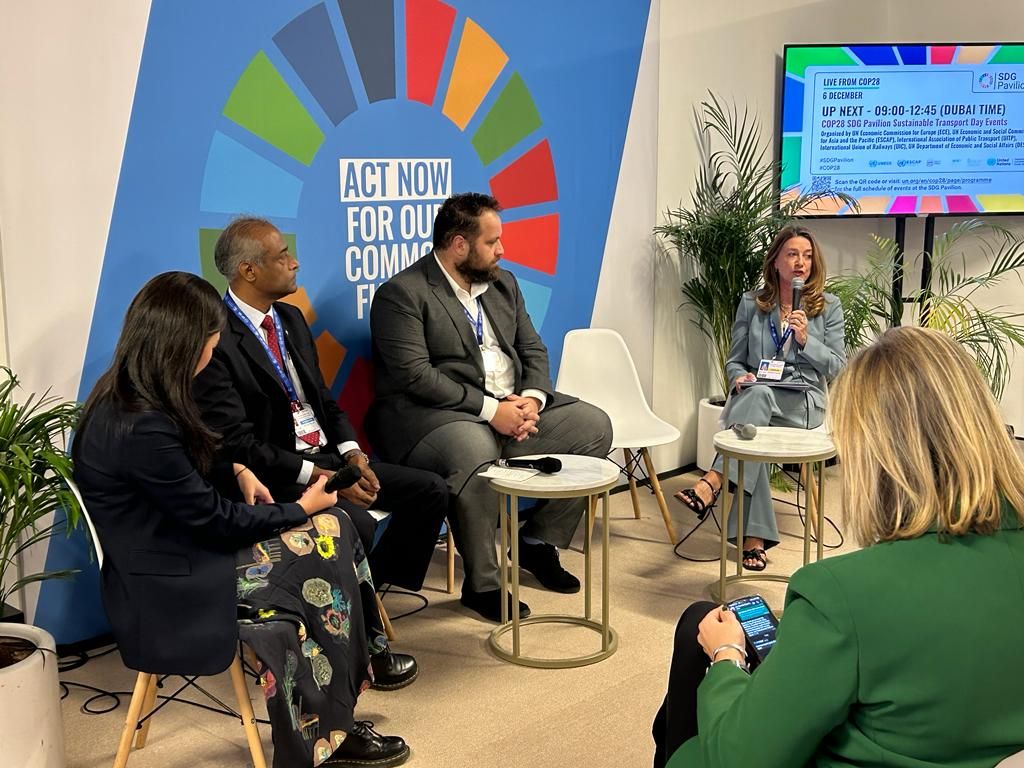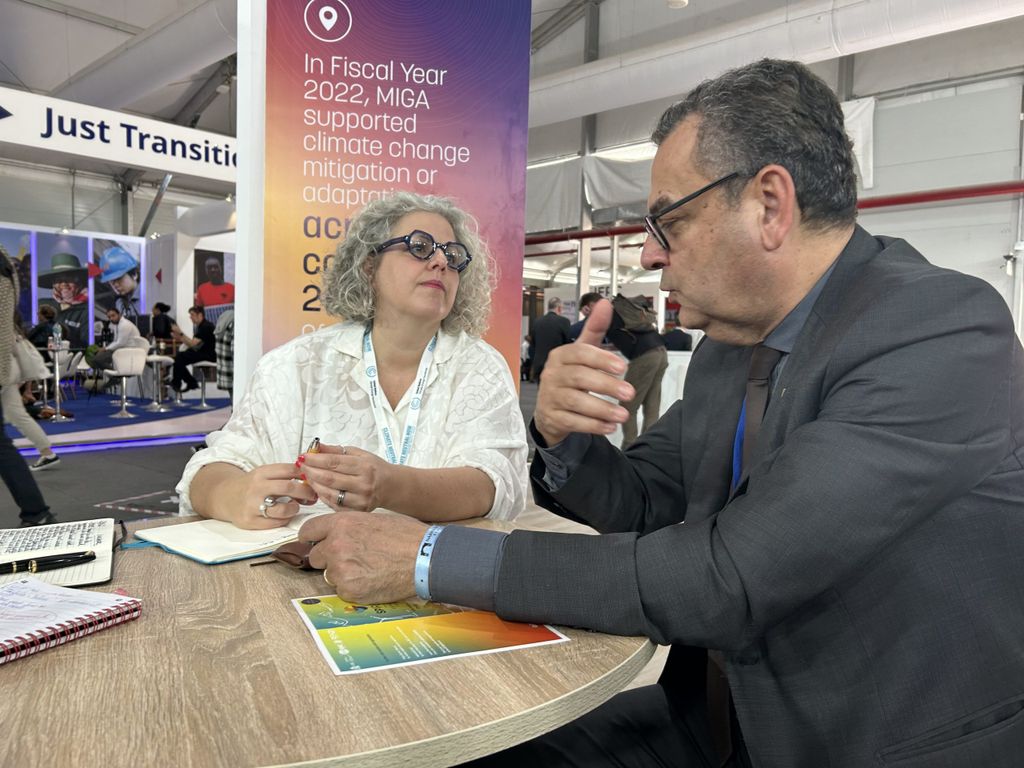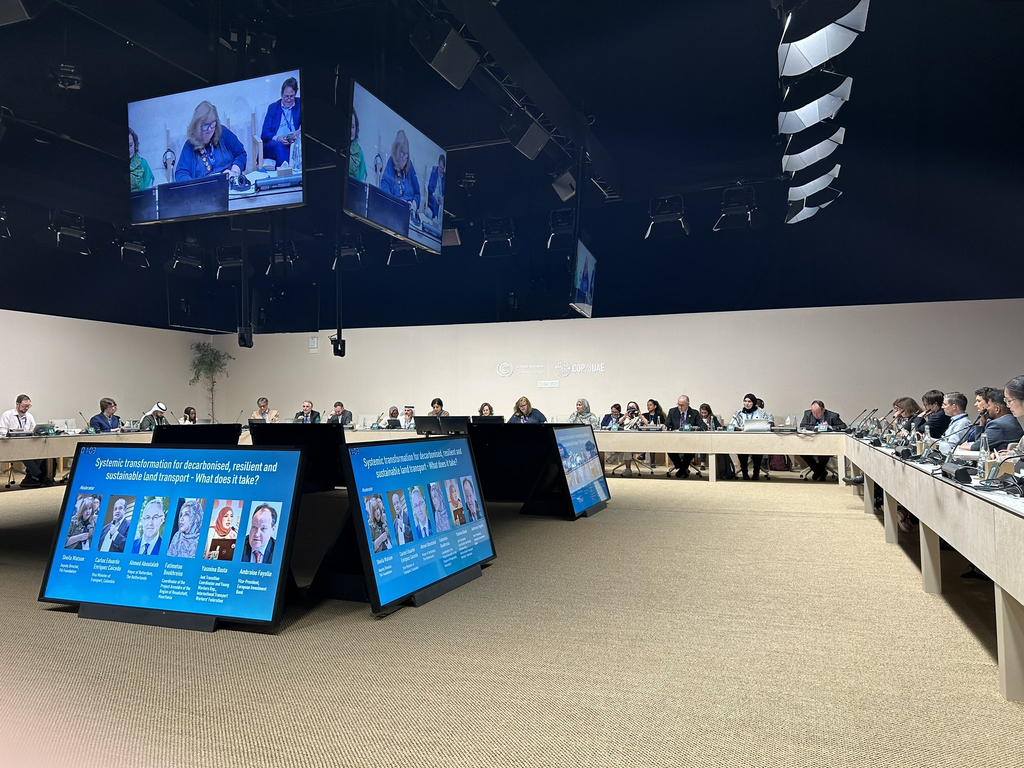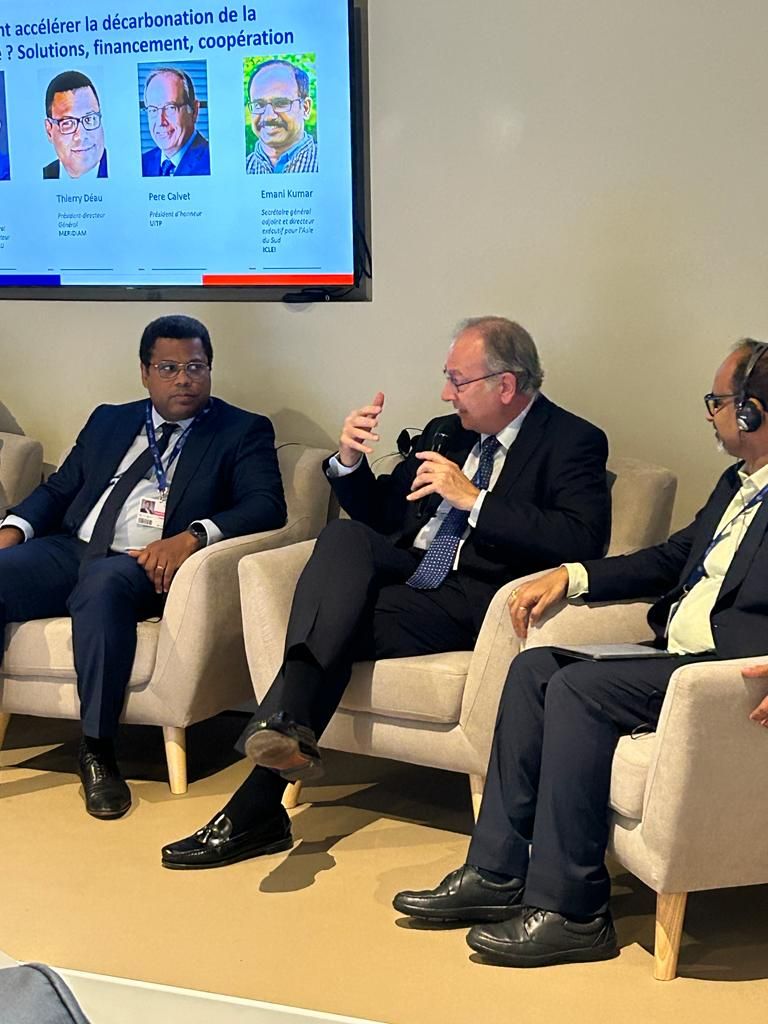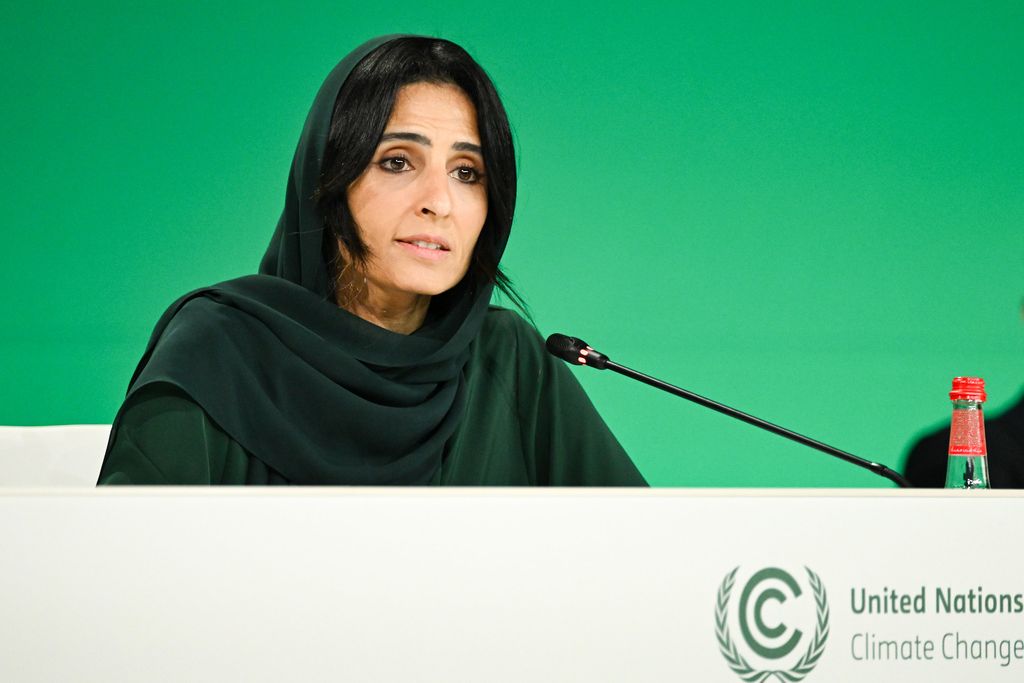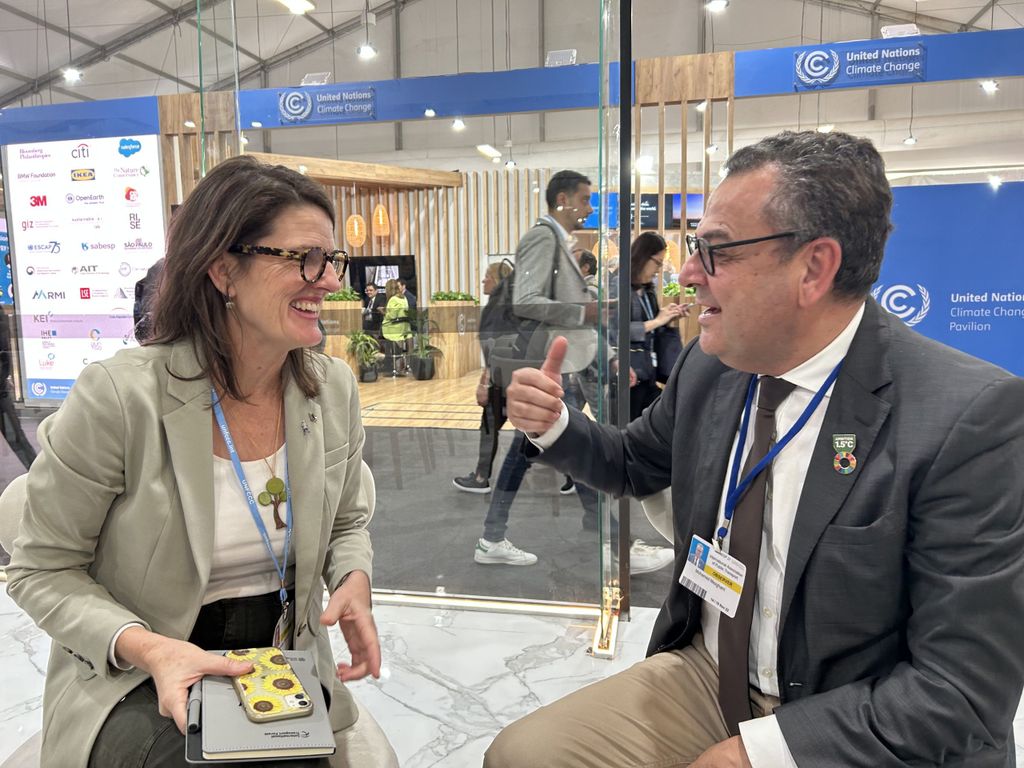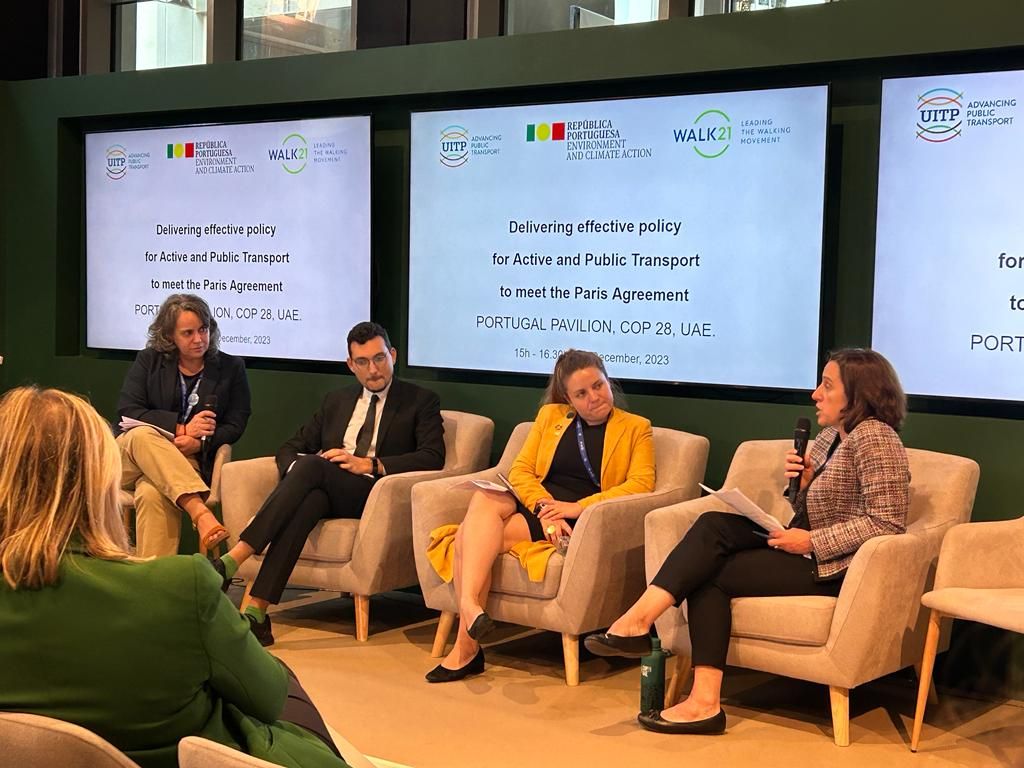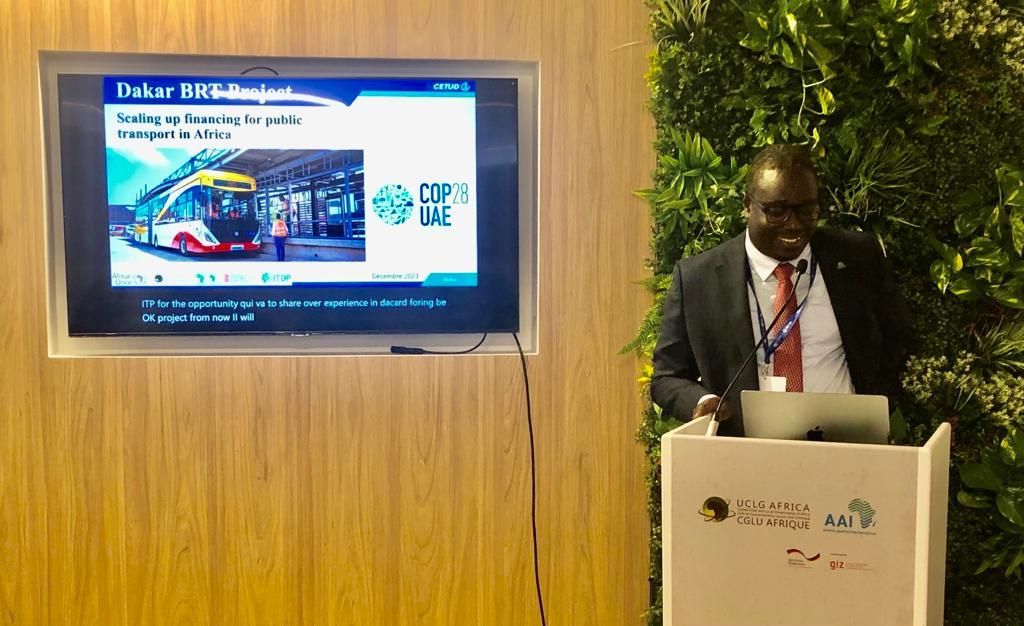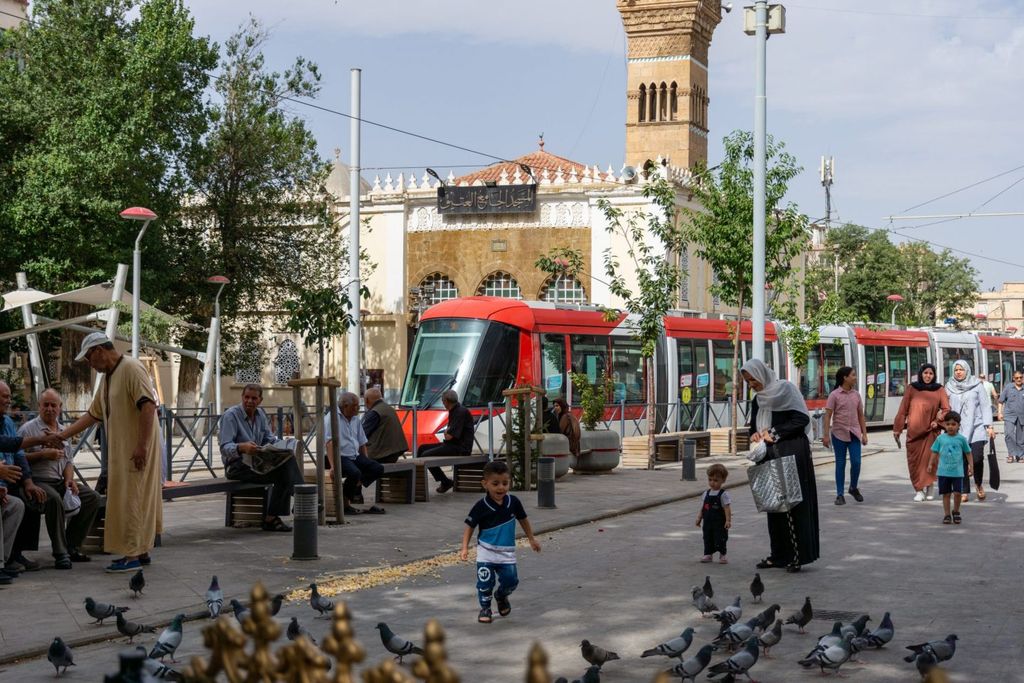
COP
…the solution for sustainable low carbon cities
Beginning in 1995 with COP1, the United Nations Framework Convention on Climate Change (UNFCCC) organises the formal meeting of all relevant parties for the annual COP – the Conference of the Parties.
UITP has attended and participated since the 2000s, with our activity increasing in the past ten years with the growth of our internal sustainable development and advocacy activities.
After pushing hard to have the massive potential of public transport recognised in the climate talks, COP28 in Dubai finally included the role of transport in climate action. In the global stocktake decision text world leaders came to an agreement that, according to the UNFCCC, “signals the ‘beginning of the end’ of the fossil fuel era by laying the ground for a swift, just and equitable transition, underpinned by deep emissions cuts and scaled-up finance”.
The agreement “recognises the need for deep, rapid and sustained reductions in greenhouse gas emissions in line with 1.5 °C pathways.” In order to achieve this, the text calls on Parties to contribute to global efforts through their national contributions. One of those contributions focuses on transport by “accelerating the reduction of emissions from road transport on a range of pathways, including through development of infrastructure and rapid deployment of zero and low-emission vehicles.”
For public transport, that means:
- Developing infrastructure to give more people access to sustainable transport modes;
- Encourage a modal shift to sustainable transport like public transport, walking and cycling;
- Rapidly deploying zero & low-emission vehicles, for example by electrifying bus fleets.

COP28 showed nations they must invest in public transport to advance their climate ambition. Still, one in three nations haven’t integrated public transport strategies into their climate action plans. This is shown in UITP’s latest analysis report on Public Transport & Nationally Determined Contributions (NDCs). Of countries that do include public transport in their NDC, only half actually identify a specific budget to deliver on the actions.
We need to focus on identifying solutions that can lay the foundation for countries to update and enhance their national climate action plans. These ‘Nationally Determined Contributions’ (NDCs) will be updated in 2025. At the same time, it will be just as important to find ways to increase the implementation of measures that can close the gaps to 2030.
Public transport is the best solution to decarbonise cities, fast-tracking the energy transition and slashing emissions before 2030. It is the most cost-efficient way to decarbonise people’s daily mobility. The investments pay for themselves.
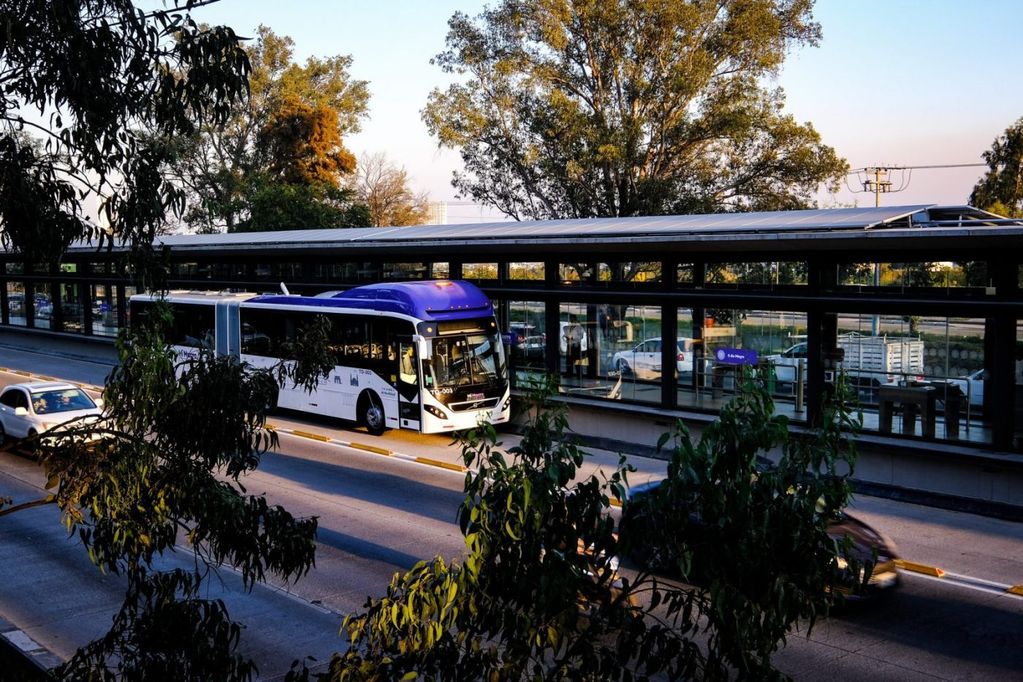
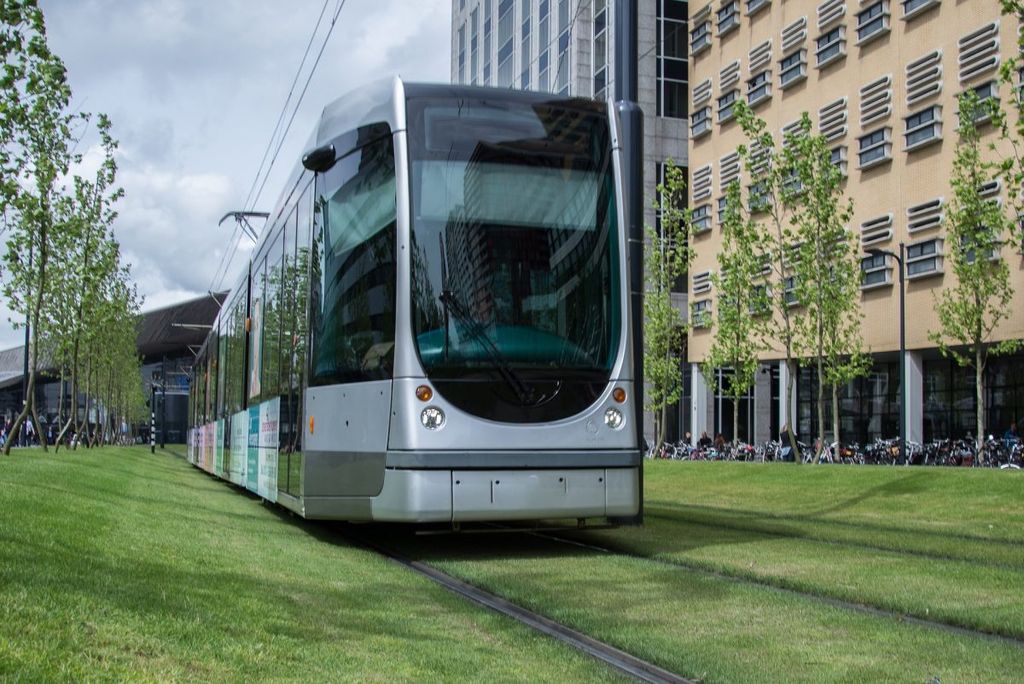
The emissions reduction potential of public transport is undervalued. Doubling the use of public transport and designing cities around it to reduce car dependency would cut urban transport emissions by more than half.
It will yield a 5% cost saving, and drive industry by creating tens of millions of jobs, compared to continuing on the existing investment pathway. This is because every dollar invested in public transport, brings back fives times more into the wider economy. As a result, the investments pay for themselves.
NDCs should:
- Include a range of public transport and active mobility policies and measures. They must outline specific commitments, finance and ambitious targets.
- Support regional and city governments, and outline how national governments will support city-level action on public transport.
- Include the plans and actions of the public transport sector to reduce their operational carbon footprint and support a shift towards public transport in NDCs to make them more ambitious.
- Support capacity building and technical assistance, particularly from non-state actors, to ensure NDCs are not only delivered, but made even more ambitious.
- Measure key performance indicators, both linked to greenhouse gas emissions and those linked to other societal factors. This will allow for linkages with the United Nations Sustainable Development Goals.
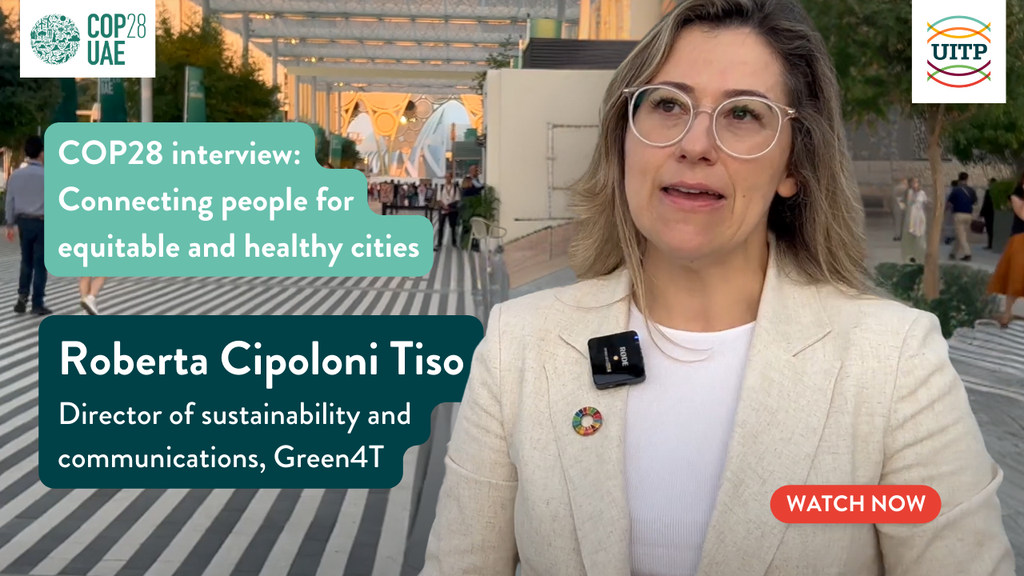
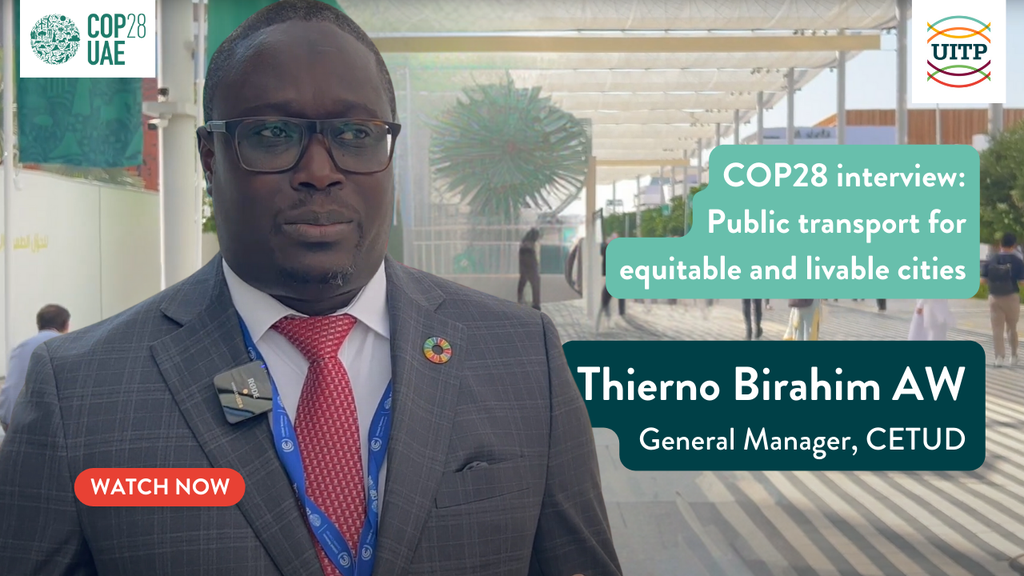
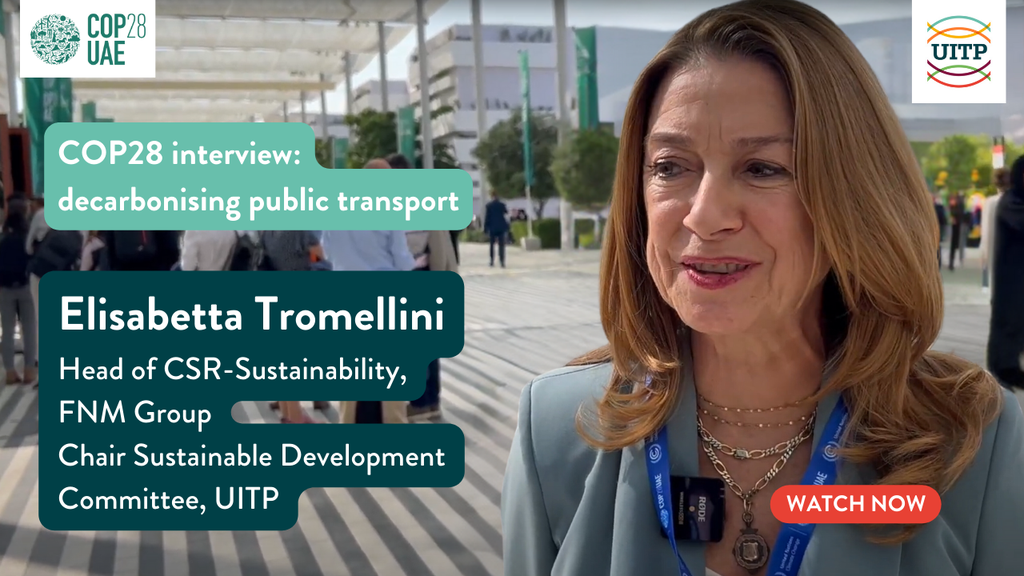
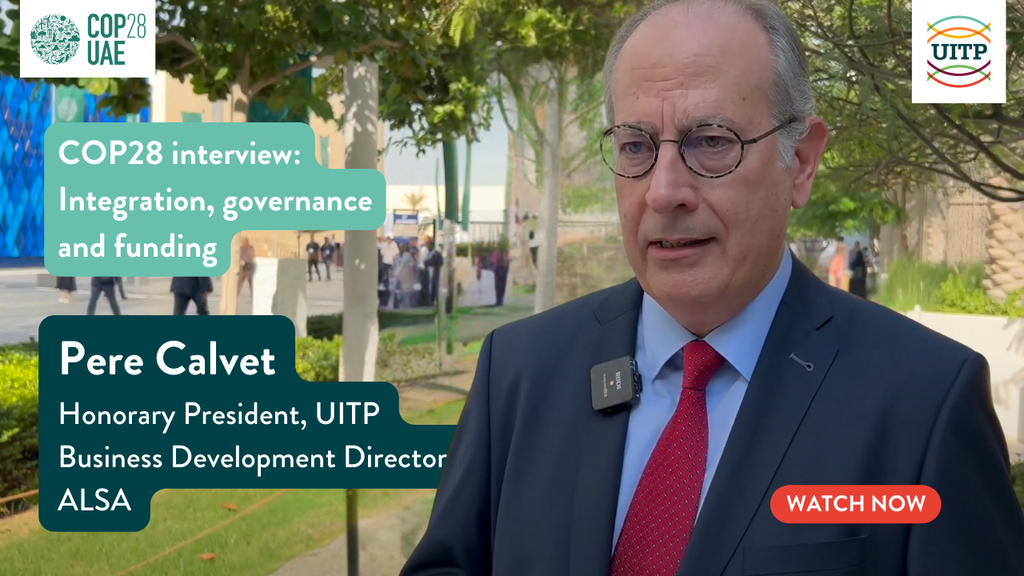
“In the end, I am proud of the work we do to advance public transport. Every day, we do our bit to build healthier, happier, and stronger cities. Every COP is a huge step forward, and every next COP will be an even bigger leap.”
Since the early 2000s, UITP has been present at COP to advance public transport. For COP27, the 2022 climate gathering in Sharm El Sheikh, Egypt, UITP pressed for public transport to play a big part in the year’s initiatives. Out of this, we co-led the creation of the LOTUS and SURGe programmes to advance urban sustainability and low carbon transport.
LOTUS, or Low Carbon Transport for Urban Sustainability, is designed to take on 5 systemic challenges in urban mobility, namely in the Global South:
- The financing gap
- Weak policy making and implementation capability
- Lack of policy coherence and targets
- Difficulty integrating and regulating informal transport
- Siloed thinking around modes
To overcome these challenges, LOTUS will scale investment in e-vehicles, empower and invest in informal transport to decarbonise, and build capacity in low- and middle-income countries. In particular, UITP will co-lead the last track focused on developing integrated, multimodal policy frameworks.
SURGe, Sustainable Urban Resilience for the next Generation in full, will stimulate effective multi-level governance to transform cities to be healthy, sustainable, just, inclusive, low-emission and resilient. As the most climate and cost-effective way to decarbonise urban mobility, public transport and active travel play a key role. UITP will co-lead efforts to accelerate and support the uptake of public transport and active mobility in cities.
Mohamed Mezghani: Acting on behalf of Mohamed Mezghani SARL
Contact
UITP

UITP

become a member

